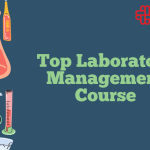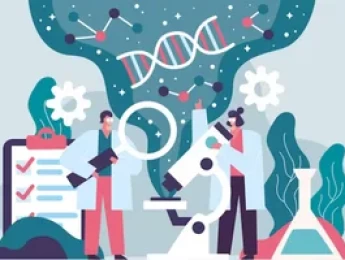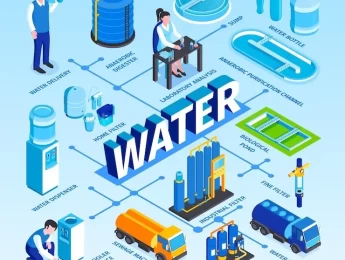Laboratories are vital to many different sectors, primarily healthcare and science sectors. Laboratory technicians play a key role in the laboratory, as they conduct most of the physical, hands-on work to support colleagues and increase the laboratory's productivity.
A laboratory technician should understand the laboratory's instruments and equipment. They should be able to explain and demonstrate safe handling techniques for each piece of equipment and use it efficiently. Technicians will also have the knowledge and skills to sterilise and decontaminate instruments and the environment efficiently.
Alongside knowledge of the equipment, a laboratory technician should also be competent in the laboratory's health and safety procedures. They should seek to reduce the probability of risks at every opportunity through safe handling. Furthermore, they should understand how to identify and report potential hazards correctly. As a part of health and safety, a technician will ensure the correct disposal of clinical and non-clinical waste.
Upon completion of this course, participants will be able to:
- Understand the importance of a laboratory technician in a clinical laboratory.
- Evaluate the roles, responsibilities, and competencies of a laboratory technician.
- Identify different types of laboratory instruments and equipment.
- Explain the purpose and methods of handling various laboratory equipment.
- Comprehend basic clinical chemistry and clinical microbiology.
- Describe the different solutions within the laboratory and how to utilise them correctly.
- Closely follow all health and safety procedures.
- Analyse methods of cleaning, sterilisation and decontamination both pieces of equipment and the overall environment.
This course is designed for anyone within a laboratory setting who wishes to develop their knowledge. It would be most beneficial for:
- Laboratory Technicians
- Laboratory Technician Graduates
- Research Scientists
- HSE Officers
- Glassware Washers
- Clinical Waste Managers
This course uses a variety of adult learning styles to aid full understanding and comprehension. Participants will review video recordings of a laboratory to identify different pieces of equipment and highlight any potential risks within the environment.
They will be able to participate in a variety of learning methods and exercises, including seminars, discussions, case studies, and group activities. This assortment of learning methods will help the participants truly engage with the taught content and develop full comprehension of the knowledge and related practical skills.
Day 5 of each course is reserved for a Q&A session, which may occur off-site. For 10-day courses, this also applies to day 10
Section 1: Introduction to the Laboratory
- Defining what a clinical laboratory is, its purpose and necessity within healthcare.
- Recognising what positions work within the laboratory.
- What different services may be conducted in the laboratory.
- Describing the roles, responsibilities, and competencies of a laboratory technician.
- Understanding the classification and structure of different laboratory services.
- Following a professional code of conduct and ethics.
Section 2: Health and Safety
- Exploring what types of risks are associated with a laboratory – general occupational risks.
- Explaining what internal and external factors may influence the probability or the type of risks.
- Comprehending the consequences of poor health and safety and the potential accidents that may occur.
- How to identify and assess risks and the process of reporting to the correct individual.
Section 3: Instruments and Equipment
- Understanding the classification and organisation of different pieces of equipment – flasks, beakers, pipettes and more.
- Identifying the various types of microscopes and their unique features.
- Conducting safe handling techniques for all pieces of equipment.
- Maintaining the integrity of each piece of equipment and how to recognise and report faults.
Section 4: Sterilisation and Disinfection
- The vitality of correct sterilisation and disinfection within a laboratory setting.
- Evaluating the different methods of sterilisation and the ideal circumstances to utilise them – dry heat, moist heat, and steam under pressure.
- Explain the various types of autoclaves, their advantages, disadvantages, and their ideal purpose.
- How to safely dispose of clinical and non-clinical waste in alignment with the organisation’s policies and national law.
Section 5: Maintaining Quality
- Understanding why maintaining quality is important.
- Recognising the consequences of poorly maintained quality and how it impacts both patients and the organisation.
- Following laboratory procedures closely to ensure all practice standards are being met.
- Working collaboratively with colleagues within the laboratory to ensure all targets are being met.
Upon successful completion of this training course, delegates will be awarded a Holistique Training Certificate of Completion. For those who attend and complete the online training course, a Holistique Training e-Certificate will be provided.
Holistique Training Certificates are accredited by the British Assessment Council (BAC) and The CPD Certification Service (CPD), and are certified under ISO 9001, ISO 21001, and ISO 29993 standards.
CPD credits for this course are granted by our Certificates and will be reflected on the Holistique Training Certificate of Completion. In accordance with the standards of The CPD Certification Service, one CPD credit is awarded per hour of course attendance. A maximum of 50 CPD credits can be claimed for any single course we currently offer.
- Course Code IND05-132
- Course Format Classroom, Online,
- Duration 5 days











